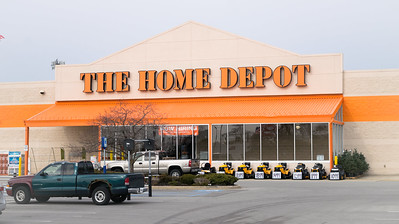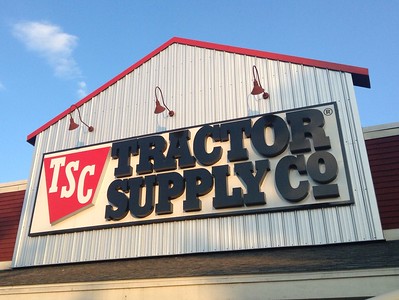
Exchanging a propane tank that is not empty may be possible, but it ultimately depends on the policies of the propane retailer or exchange program. Some retailers and exchange programs have different policies regarding the exchange of full or partially full tanks, so it’s always a good idea to check with them beforehand.
In some cases, retailers or exchange programs may require that the tank be partially or completely empty before they will exchange it. This may be because the exchange program or retailer needs to inspect the tank for safety reasons or because they do not want to assume the liability of handling and transporting a tank that is full or partially full.
On the other hand, some retailers or exchange programs may allow you to exchange a full or partially full tank for a new one, but at a different price point. For example, you may have to pay a fee or surcharge for the exchange if the tank is not empty.
In general, it’s always a good idea to check with the retailer or exchange program beforehand to determine their policies and any associated fees. This can help you avoid any surprises and ensure a smooth exchange process. Additionally, it’s important to follow all safety guidelines when handling propane tanks, whether they are full, partially full, or empty.
Advantages of Checking the Policies of the Retailer or Exchange Program
Checking the policies of the retailer or exchange program before exchanging a propane tank that is not empty has several advantages, including:
- Avoiding surprises: Knowing the policies of the retailer or exchange program beforehand can help you avoid any unexpected fees or surcharges for exchanging a full or partially full tank. This can help you plan and budget accordingly.
- Ensuring a smooth exchange process: Understanding the policies of the retailer or exchange program can help you prepare for the exchange process and avoid any potential delays or issues.
- Ensuring safety: Some retailers or exchange programs may have safety requirements for exchanging full or partially full propane tanks, such as inspecting the tank for damage or leaks. Knowing these requirements can help ensure the safe handling and transportation of the tank.
- Finding the best option for your needs: Different retailers and exchange programs may have different policies, fees, and options for exchanging propane tanks. By checking the policies of multiple options, you can find the best option for your specific needs and budget.
Checking the policies of the retailer or exchange program before exchanging a propane tank that is not empty can help you avoid surprises, ensure a smooth exchange process, ensure safety, and find the best option for your needs.
How to exchange an empty propane tank?
To exchange an empty propane tank, you can follow these steps:
- Locate a propane retailer or gas station that offers propane tank exchanges. These locations may be marked with a sign or have a dispensing station specifically for propane.
- Bring the empty propane tank to the retailer or gas station. Be sure to turn off any appliances or equipment that are connected to the tank before exchanging it.
- Find the exchange area or ask a member of the staff for assistance. Some retailers may require you to leave the empty tank with them and pay a fee for the exchange, while others may allow you to exchange it on the spot.
- Pay for the exchange and receive a new, full propane tank. If you are exchanging the tank on the spot, the retailer may help you attach the new tank to your appliance or equipment.
- Follow the instructions provided by the retailer or the manufacturer of your appliance or equipment to properly attach the new propane tank and ensure that it is functioning correctly.
It’s important to note that propane tanks have expiration dates, so be sure to check the expiration date on the tank before exchanging it. It’s also a good idea to keep a spare propane tank on hand in case you run out of fuel while using your appliance or equipment.
Where can I exchange my propane tank?
There are a few places where you can exchange your propane tank:
- Propane retailers: Many propane retailers and companies, such as AmeriGas and Ferrellgas, offer propane tank exchange services at their locations. You can typically find a list of retailers in your area by searching online or by checking the phone book.
- Gas stations: Some gas stations and convenience stores offer propane tank exchange services. Look for a dispensing station specifically for propane or ask the staff if they offer propane exchanges.
- Hardware stores: Some hardware stores, such as Lowe’s and Home Depot, offer propane tank exchange services.
- Online retailers: You can also exchange your propane tank online through retailers such as Amazon and Walmart. These retailers may offer free shipping or delivery options for the new propane tank.
It’s a good idea to call ahead or check the retailer’s website to confirm that they offer propane tank exchange services and to find out their specific policies and procedures.
Fees and Surcharges that May Apply
When exchanging a propane tank that is not empty, there may be fees and surcharges that apply. The exact fees and surcharges will depend on the policies of the retailer or exchange program, but some common ones include:
- Exchange fee: Some retailers or exchange programs may charge a fee for exchanging a full or partially full tank. This fee is typically in addition to the cost of the new tank.
- Propane fee: If the tank being exchanged is partially full, some retailers or exchange programs may charge a fee for the remaining propane. This fee is based on the current price of propane and is typically calculated by the gallon.
- Hazmat fee: A hazmat fee may apply if the propane tank being exchanged has been used for hazardous materials or if it is considered hazardous waste.
- Late fee: If the tank being exchanged is past its expiration date or the exchange process is delayed, some retailers or exchange programs may charge a late fee.
- Deposit fee: Some retailers or exchange programs may require a deposit fee for the new tank being exchanged. This fee is typically refundable when the tank is returned.
- Sales tax: Sales tax may apply to the cost of the new tank and any associated fees or surcharges.
- Environmental fee: An environmental fee may apply to the exchange process, which covers the cost of disposing of the old tank.
- Administrative fee: An administrative fee may apply to cover the cost of paperwork or other administrative tasks associated with the exchange process.
It’s important to note that the specific fees and surcharges will vary depending on the retailer or exchange program, so it’s always a good idea to check with them beforehand to understand their policies and associated costs.
To Make a Finalization
Whether you can exchange a propane tank that is not empty depends on the policies of the retailer or exchange program. While some may require the tank to be completely or partially empty, others may allow the exchange of full or partially full tanks for a new one, but with different prices and fees.
It is important to check the policies of the retailer or exchange program before exchanging a tank to avoid any surprises, ensure a smooth exchange process, ensure safety, and find the best option for your needs and budget.
Additionally, following safety guidelines is crucial when handling propane tanks, regardless of whether they are being exchanged or not. By understanding the policies and following safety guidelines, you can have a safe and stress-free experience when exchanging a propane tank that is not empty.

Jeremy is a highly experienced professional propane technician with over 21 years of experience in the industry. Throughout his career, he has gained extensive knowledge and expertise in propane gas installation, maintenance, and repair, as well as in ensuring safety and compliance with industry standards. Mike has worked with various residential, commercial, and industrial clients, providing top-notch services and solutions to meet their propane needs. He is dedicated to his craft and passionate about delivering exceptional service to his clients.



